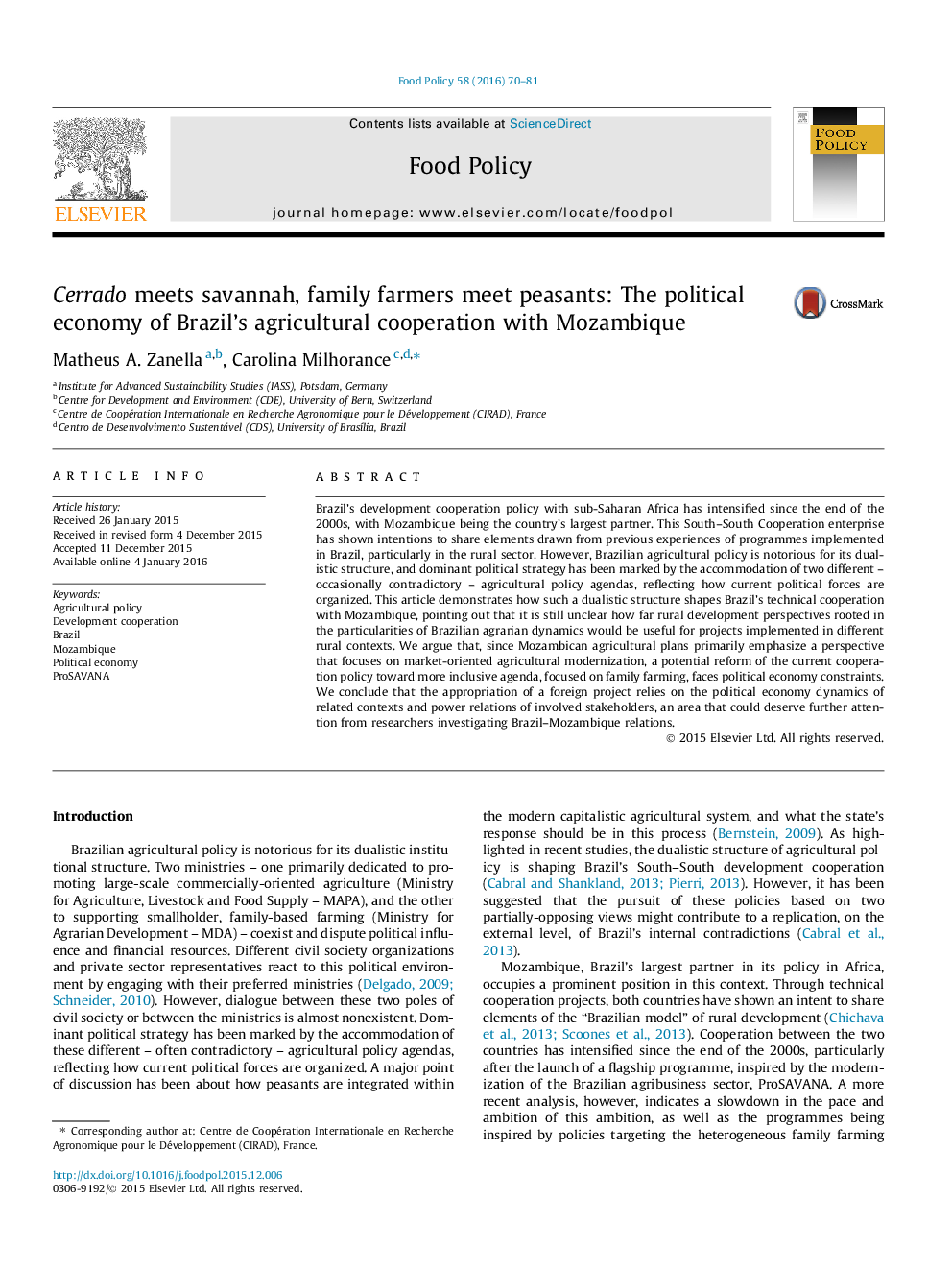| کد مقاله | کد نشریه | سال انتشار | مقاله انگلیسی | نسخه تمام متن |
|---|---|---|---|---|
| 5070270 | 1477018 | 2016 | 12 صفحه PDF | دانلود رایگان |

- We analyze sharing potential of Brazil's south-south cooperation in the rural sector.
- Brazil's rural dualistic structure shapes its technical cooperation with Mozambique.
- The results of policy sharing depend on Mozambique's political economy dynamics.
- Mozambique's priorities and accumulation pattern favors Brazil's agribusiness.
- A more inclusive agenda face political economy constraints on both sides.
Brazil's development cooperation policy with sub-Saharan Africa has intensified since the end of the 2000s, with Mozambique being the country's largest partner. This South-South Cooperation enterprise has shown intentions to share elements drawn from previous experiences of programmes implemented in Brazil, particularly in the rural sector. However, Brazilian agricultural policy is notorious for its dualistic structure, and dominant political strategy has been marked by the accommodation of two different - occasionally contradictory - agricultural policy agendas, reflecting how current political forces are organized. This article demonstrates how such a dualistic structure shapes Brazil's technical cooperation with Mozambique, pointing out that it is still unclear how far rural development perspectives rooted in the particularities of Brazilian agrarian dynamics would be useful for projects implemented in different rural contexts. We argue that, since Mozambican agricultural plans primarily emphasize a perspective that focuses on market-oriented agricultural modernization, a potential reform of the current cooperation policy toward more inclusive agenda, focused on family farming, faces political economy constraints. We conclude that the appropriation of a foreign project relies on the political economy dynamics of related contexts and power relations of involved stakeholders, an area that could deserve further attention from researchers investigating Brazil-Mozambique relations.
Journal: Food Policy - Volume 58, January 2016, Pages 70-81